Return of 2,400 Somali refugees leads to closing of third camp in Ethiopia
The voluntary return of more than 2,400 Somali refugees last week brings to more than 50,000 the number of voluntary repatriations last year and leads to the closing of a third refugee camp in Ethiopia.

ADDIS ABABA, Ethiopia, Jan. 2 (UNHCR) - The repatriation of thousands of Somali refugees from Ethiopia has continued at a steady pace, reflecting a more stable situation in parts of the east African country and leading to the closing of three of eight refugee camps.
Two convoys last week repatriated 2,412 people from Ethiopia's Daror camp to north-west Somalia, bringing the total number of refugees who returned home in 2001 to 50,216. The latest returnees received a nine-month food ration, plastic sheeting and blankets to help them restart their lives.
The Daror complex, which includes health clinics, schools, water systems and generators, and which once hosted 50,000 refugees, will be handed over by UNHCR to the local community.
Earlier last year, Teferiber and Dawarnaji camps were also closed.
Another estimated 67,000 Somalis who fled following the outbreak of widespread civil war a decade ago remain in five other camps in Ethiopia. More than half are expected to return home by June, but some 30,000 others from southern Somalia cannot be repatriated because the security situation in that part of the country remains unstable.
Related news and stories
Thousands of newly arrived Somali refugees in Ethiopia relocated to new settlement
Samira's Story
Drought brings life-threatening food shortages for refugees in Ethiopia
100,000 new Somali refugees arrive in Ethiopia in the past month, UN and partners are calling for urgent funding
UNHCR teams and partners rush assistance to some 100,000 newly arrived Somali refugees in hard-to-reach area of Ethiopia
As the Horn of Africa drought enters a sixth failed rainy season, UNHCR calls for urgent assistance
-

Middle East and North Africa Global Refugee Forum Stocktaking and NGO/Civil Society Consultations Outcome Report
15 Sep 2021 The MENA Global Refugee Forum Stocktaking and NGO/Civil Society Consultations took place on 20 – 21 April 2021, bringing together over 150 participants from Egypt, Iraq, Jordan, Kuwait, Tunisia, Morocco, Lebanon, Libya, Mauritania; participants from regional organizations and multi-stakeholder partners. It included discussions on the practical ways in which actors are advancing the GCR and implementing GRF pledges, considering COVID-19, and considering the evolving challenges and opportunities on the ground. -
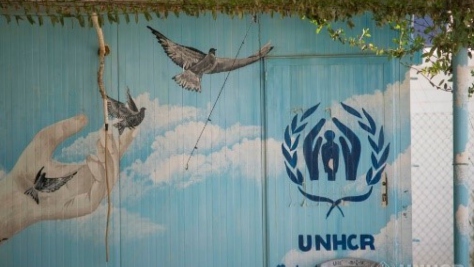
What is Sexual Exploitation, Abuse and Harassment?
All UN personnel should report sexual exploitation and abuse. Regarding sexual harassment, UNHCR's position is clear: Sexual harassment in the workplace is unacceptable and must be eradicated from operations. -
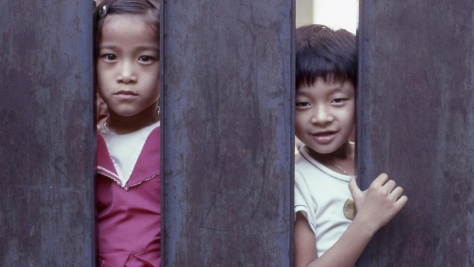
Forced To Flee: UNHCR podcast tells story of displacement over 70 years
14 Sep 2021 To mark UNHCR's 70th anniversary, a new seven-part series revisits major upheavals that shaped the period through the eyes of displaced people and others caught up in events. -
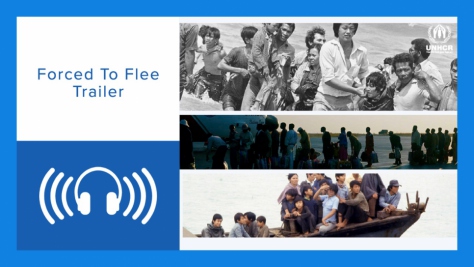
Forced to Flee #PODCAST | TRAILER
14 Sep 2021 -
Statement at the High-level Ministerial Meeting on the Humanitarian Situation in Afghanistan
13 Sep 2021 -
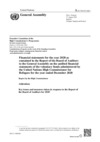
Key issues and measures taken in response to the Report of the Board of Auditors for 2020 (A/AC.96/1212/Add.1)
13 Sep 2021 -

A Victim-Centred Approach
-

Equip and Empower
This strategy serves as a guide for the tangible actions we take in the prevention of and response to sexual exploitation, abuse, and sexual harassment. This includes implementing a policy on a victim centre approach, having focal points in operations dedicated to the prevention of and response to sexual exploitation and abuse and having a victim care officer supporting survivors of sexual harassment. -
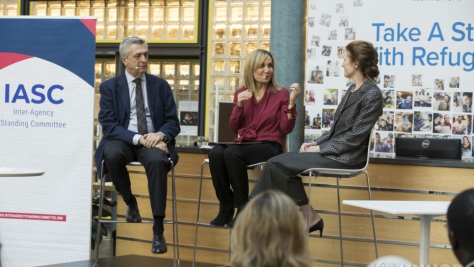
Accountability
Sexual misconduct is rooted in a culture of discrimination and privilege based on gender inequalities and power imbalances. Eradicating sexual misconduct requires a change in individual attitudes and organizational culture.
